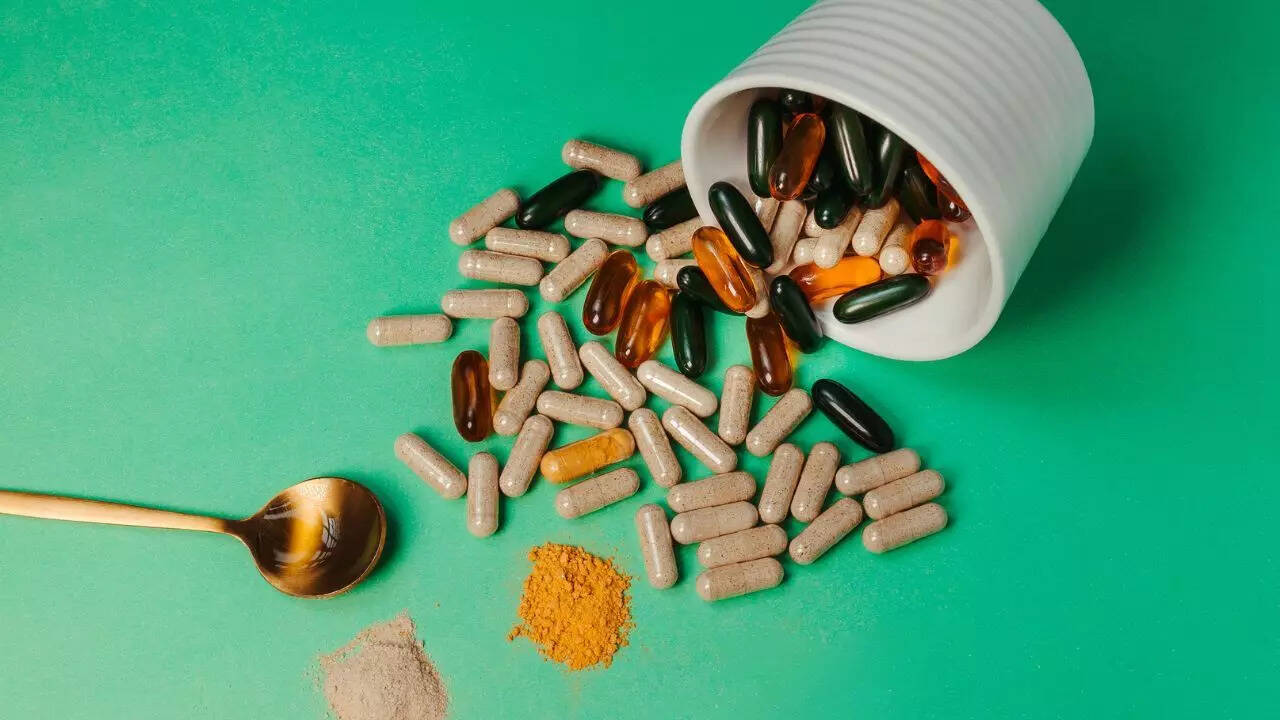Iron is an essential mineral for our body. It is indispensable for oxygen transport, energy, immunity, brain function, and overall growth. Iron deficiency can lead to fatigue, weakened immunity, anemia and even developmental issues. Maintaining iron levels is crucial for a healthy life. While whole foods like dried fruits, seeds, poultry or beans can be the primary sources of iron, sometimes iron intake from these food items isn’t sufficient. When diet and absorption is insufficient, iron supplements act as a safety net.

Credits: Canva
While iron supplements are effective in dealing with deficiencies, in some cases, they can also cause side effects and the most common are gastrointestinal. These side effects usually depend on the type of iron used and individual tolerance. Sometimes these complications discourage people from continuing supplementation. However, it is fortunate that some simple strategies can help manage the side effects. Below are 3 side effects of Iron supplements and strategies to manage them. 1. ConstipationIron supplements can cause constipation by slowing down bowel movements and making stool harder. This occurs when unabsorbed iron in the gut travels to the large intestine, where it can draw water from the intestinal lining.

Credits: Canva
To manage constipation from iron supplements, one can:
- Increase fiber intake by consuming fiber-rich fruits, vegetables and whole grains.
- Stay hydrated by drinking plenty of water and other liquids. This will help soften stools.
- Use stool softeners like docusate sodium under medical supervision.
2. NauseaNausea is also a prevalent side effect of iron supplementation. Gastric irritation, oxidative stress and gut microbiota disruption lead to the discomfort.

Credits: Canva
Ways to manage nausea from iron supplements:
- Consuming iron supplements with food, it may reduce gastric irritation.
- Take smaller doses by dividing the doses throughout the day.
- Trying different formulations after consulting with doctors can help. Liquid iron supplements may be better tolerated.
3. Dark colored stoolIron supplements can cause stool to turn black or dark green. According to studies, this may be caused by excess iron that isn’t absorbed in the small intestine and passes into the colon, where it can darken stool color.

Credits: Canva
Management strategies may include:
- Keep track of any other symptoms that may develop and report those to your healthcare professional. Let your doctor know about the change in stool color to avoid unnecessary concern.
It is important to note that iron supplementation can affect individuals differently and the severity of the side effects may vary. If the side effects are persistent and showing severe symptoms, it is advised to take consultation with a qualified healthcare professional. Disclaimer: This article is for informational purposes only and does not endorse self-diagnosis or self-medication. Always reach out to a healthcare professional in case of any side effects.

